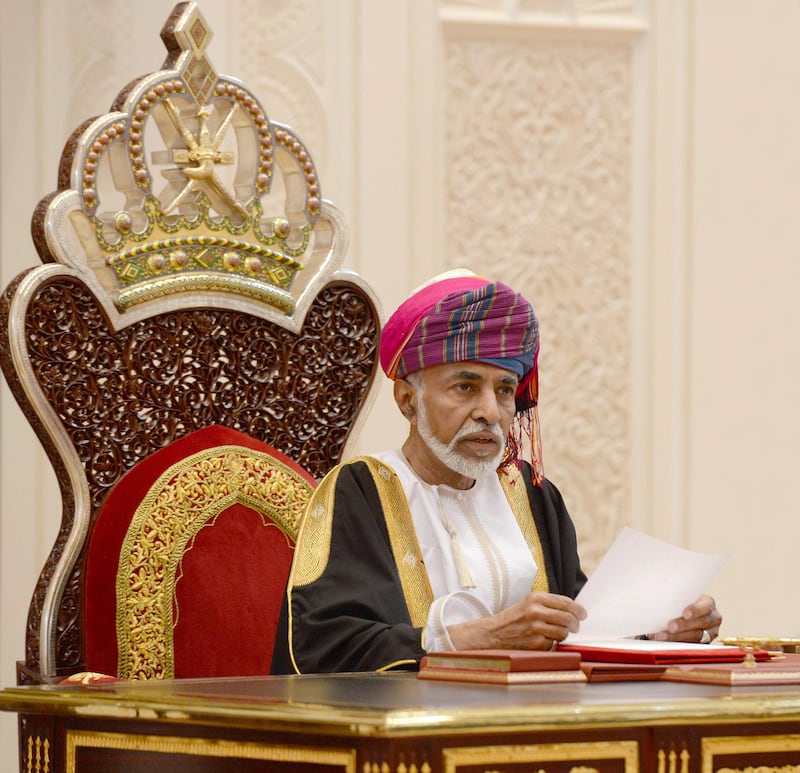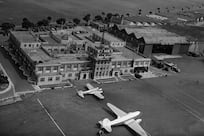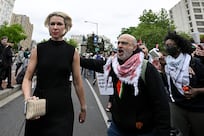MUSCAT // Donald Trump has asked Sultan Qaboos to help contain Iran’s influence in the region where Oman’s unique position could help broker a resolution to the Qatar crisis.
The US president spoke with Sultan Qaboos late on Tuesday and “emphasised the need to counter Iran’s destabilising activities in the region.”
The phone call took place as the US placed new sanctions on Iranian individuals and companies linked to its military and a week after Oman’s foreign minister met Iran’s leadership in Tehran.
Sources in Oman said Mr Trump wants Oman to play a bigger role in mediating in the dispute between four Arab countries and Qatar and asked Oman to use its influence to contain Iran.
"The US sees Iran at the bottom of the current regional conflict that has isolated Qatar," the government source told The National. "It is obvious that the US would have liked Kuwait to do more in the mediation and now wants Oman to use its special privileges it has on Iran to diffuse the tension.
“What is important about this call is that the US now accepts that Oman can play a better meditating role between two feuding sides since it enjoys good relationships with all of its neighbours.”
Oman has closer relations to Iran than most of its fellow GCC countries and has acted as a broker between the US and Tehran.
The Sultanate helped to mediate secret US-Iran talks in 2013 that led to the historic nuclear deal signed in Geneva two years later.
Oman, along with Kuwait, has also remained neutral in the worst diplomatic crisis in GCC history. The UAE, Saudi Arabia, Bahrain and Egypt have all boycotted Qatar, accusing it of supporting terror groups.
Last week, Oman’s foreign minister Yusuf Alawi bin Abdulla visited Iran to discuss regional issues.
Oman has so far played a low-key role in the Qatar crisis, while Kuwait has been the chief mediator. The Kuwaiti emir, Sheikh Sabah, has shuttled between Gulf capitals attempting to diffuse tensions and seek a resolution. The US and several European countries have also played active roles but failed to make progress.
Ahmed Al Falahy, a political commentator and a former Omani diplomat, told The National, that Oman is walking a political tight rope between friendly countries, which is risking its neutral position.
"Trump's call is a clear sign that the US should have involved Oman from the beginning instead of putting its influence it has on Iran on the sidelines," said Mr Falahy. Now he realises why Obama had always put the sultan in the picture every time Tehran falls out of step."
Mr Falahy said Mr Trump may well now take Oman more seriously.
“But this may not be the view of other regional states,” he added, especially if the country continues to involve itself in practical ways with both Iran and Qatar.”
Last week, Oman gave a licence to Qatar airways to fly from its northern airport in Sohar that would allow the carrier to transfer its operations from Dubai airport. Last month, Oman agreed to supply food from two of its biggest ports, Salalah and Sohar to Doha, after Saudi Arabia closed its border with Qatar, through which the tiny state relies on 40 per cent of its supplies.
Muscat also is going ahead with a US$1.2 billion (Dh4.4bn) gas pipeline project from Iran to be built across the Strait of Hormuz.





